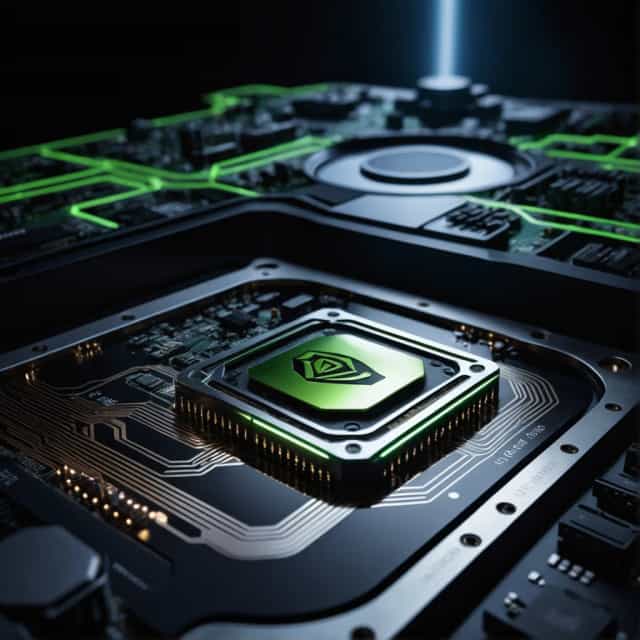
출처: Block Media
Anduril Industries Founder Warns Against U.S. Defense Sector's Dependence on China Amid Rising Trade Tensions
Global trade dynamics have been thrust into the spotlight as former President Donald Trump announced a new wave of tariffs on Chinese goods. Palmer Luckey, founder of the U.S. defense innovation hub Anduril Industries, has strongly criticized the U.S. defense sector's reliance on Chinese supply chains during an era of escalating geopolitical tensions. His clarion call underscores the urgent need for domestic self-reliance in strategically critical industries.
The Call for Supply Chain Independence in Defense Sectors
In an interview covered by Bloomberg on October 10, Palmer Luckey stated, "We need to move away from China's supply chain." He called for a comprehensive restructuring of the U.S. industrial base by prioritizing domestic production of essential materials like rare earth elements, semiconductors, and computers. With strategic clarity, he warned, "China already wields excessive influence over the U.S. through critical materials for the defense industry," highlighting the pressing need to reduce this dependency and secure American self-sufficiency through reindustrialization.
Luckey's view resonates with the broader concerns of defense leaders. Anduril CEO Brian Schimpf echoed these sentiments, remarking, "The conflict between the U.S. and China is likely to persist." Schimpf emphasized the inevitability of overhauling industrial frameworks to navigate the ongoing geopolitical challenges and ensure the resilience of U.S. companies in this evolving landscape.
U.S. Tariffs and China's Strategic Leverage
These statements from Anduril's leadership come amidst former President Trump's policy decision to impose a 100% tariff on Chinese exports starting in November. The tariffs target pivotal resources, including rare earth materials, which are cornerstones for modern defense technology. This policy action is widely seen as a countermeasure to China's export controls, which serve as a strategic lever to exert influence in sensitive industries like defense and technology on a global scale.
Anduril and Palantir: Leading the Charge in Modern Defense Technology
Anduril Industries, alongside other innovative companies like Palantir, is paving the way for a modernized and tech-forward U.S. military. Their work in autonomous systems, artificial intelligence (AI), and next-generation military hardware such as drones, aircraft, and submarines has positioned them at the forefront of the industry. These advancements align with the U.S. defense system’s push toward self-reliance in both development and production.
The Trump administration’s emphasis on modernizing national defense infrastructure saw skyrocketing valuations for players like Anduril and Palantir. These companies represent not only the economic value of defense technology but also its strategic importance amid shifting global alliances and adversarial competition.
Driving Innovation Through Landmark Contracts
Anduril's ability to deliver cutting-edge solutions was reaffirmed when it recently secured a $159 million contract under the U.S. Army's Soldier Borne Mission Command project. This initiative includes the development of advanced night vision technologies and mixed-reality systems—critical tools to bolster combat readiness and tactical awareness for U.S. soldiers.
Meanwhile, Palantir continues to extend its prowess in AI-powered defense analytics. Its $480 million Project Maven contract underscores the growing role of artificial intelligence in battlefield intelligence and decision-making, further demonstrating the centrality of tech innovation to U.S. defense strategy.
The Road Ahead: Building a Resilient U.S. Defense Industry
As trade tensions between the U.S. and China persist, leaders like Palmer Luckey and Brian Schimpf are driving a critical conversation about the strategic imperatives of self-reliance and supply chain independence. The defense industry's reliance on critical materials sourced from China poses both strategic and economic vulnerabilities. By fostering domestic production and investing in transformative technologies, companies like Anduril and Palantir aim to safeguard U.S. leadership in military innovation.
This shift will not be without challenges. Restructuring industrial frameworks and mitigating the impacts of tariffs will require collaboration between industries and policymakers. However, the long-term benefits of a domestically strengthened, technology-driven defense sector cannot be overstated.
For updates on this unfolding narrative and more of the latest developments, stay tuned by following Block Media on Google News or joining their Telegram channel for real-time updates.










